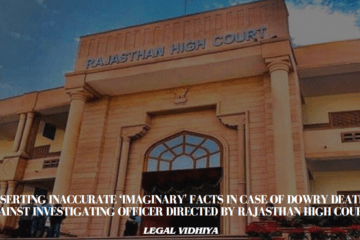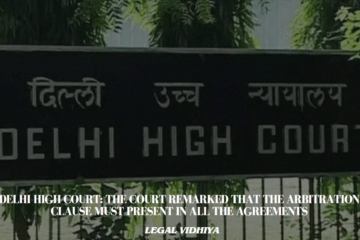
The Supreme Court of India has rendered a historic decision that may have far-reaching effects on issues pertaining to the Gujarat Prohibition Act. The interpretation of Section 451 of the Code of Criminal Procedure (CrPC) and its application to a seizure under the Gujarat Prohibition Act was at the heart of the Khengarbhai Lakhabhai Dambhala vs. State of Gujarat, 2024 INSC 285 case.
The case started when police pulled down a car they said was transporting a large amount of illicit English liquor. A police report was filed against the accused after the car and the alcohol were seized. The appellant filed a Special Criminal Application with the Gujarat High Court to request the release of the confiscated vehicle, claiming ownership of it. The appellant appealed to the Supreme Court after the High Court denied the plea.
The interpretation of CrPC Section 451, which addresses property custody and disposal during an inquiry or trial, was central to the dispute. The criminal court’s involvement in deciding who should have custody of seized property and whether to sell or otherwise dispose of it was highlighted by the Supreme Court. The appellant circumvented the provisions of Section 451 CrPC and instead petitioned the High Court directly in accordance with Articles 226 and 227 of the Indian Constitution. The Supreme Court declared this strategy to be inappropriate.
The Court examined Section 98 of the Gujarat Prohibition Act, which deals with the seizure of items connected to prohibition offenses, in addition to Section 451 of the CrPC. The discharge of automobiles used to transport more seized liquor than is allowed is restricted by Section 98, Subsection (2). The Court did find, however, that this provision’s phrasing was unclear and did not harmonize well with other sections of the Act and the CrPC.
Additionally, the Court addressed the authority granted to the Prohibition Officer or Police Officer under Section 132 of the Act with respect to the seizure of objects and their subsequent delivery to the Magistrate in charge of that jurisdiction. The clarification provided was that there are distinct circumstances under which Sections 98, 132 of the Act, and Section 451 CrPC pertain to the seizure and management of confiscated property.
The appeal was ultimately dismissed by the Supreme Court, which emphasized the need of adhering to the correct legal procedures. It made it clear that in order to request custody of the confiscated car, the appellant must go to the relevant criminal court in accordance with Section 451 CrPC. In cases involving the seizure and custody of property in criminal proceedings, the decision emphasizes the importance of statutory interpretation and procedural conformity.
The Supreme Court’s decision has been praised by legal experts as a major clarification of the Gujarat Prohibition Act’s procedural provisions. For parties involved in comparable circumstances, the ruling offers helpful information on how to properly read pertinent provisions and choose the best course of action.
The Gujarat Prohibition Act and other laws with comparable provisions are likely to be affected more broadly by the decision. It emphasizes how crucial it is to follow legal requirements and pursue appropriate legal action while dealing with property seizure and custody issues.
The ruling by the Supreme Court also emphasizes the judiciary’s responsibility for maintaining procedural justice and making sure that justice is administered effectively. The legislative framework pertaining to prohibition offenses and related judicial actions has been reinforced by the Court by offering lucidity on the interpretation of pertinent articles.
In conclusion, the decision rendered by the Supreme Court in the Khengarbhai Lakhabhai Dambhala case signifies a major shift in how the Gujarat Prohibition Act is interpreted and applied. In addition to setting a precedent for similar instances in the future, the ruling emphasizes how crucial it is for criminal proceedings to follow the law and procedural rules.
Written by- Shristi Kumari, intern under legal vidhiya.




0 Comments